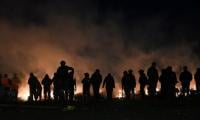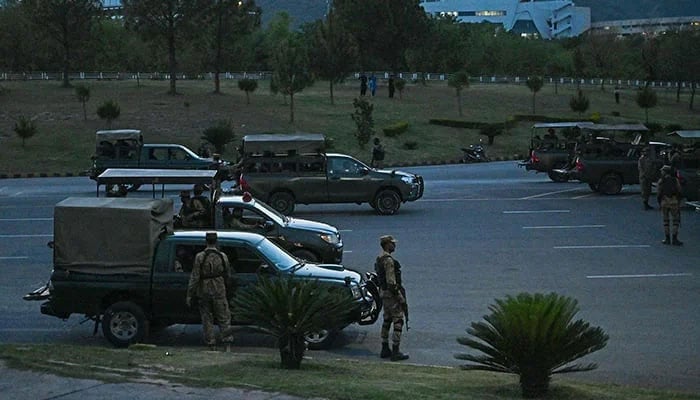Military in civil support
Federal government is authorised to deploy the army under Article 245 initially
The term ‘military deployment in aid of civil power’ refers to the use of armed forces to assist civil authorities in special circumstances when local or federal law enforcement agencies require support.
This may involve re-establishing law and order, managing threats to internal security, providing disaster relief and humanitarian aid, combating terrorism, ensuring national security, safeguarding vital infrastructure, enforcing strict border or immigration regulations, combating armed insurrections, responding to public health emergencies, fulfilling international obligations, or maintaining peace.
Most of the world’s 195 countries have legal mechanisms in place allowing military personnel to assist civilian authorities when needed to maintain public order, support civic infrastructure, and effectively respond to emergencies, while upholding the legal principle of civilian oversight of the armed forces. The military’s role in these situations is generally temporary.
Article 245(1) of the constitution authorises the federal government to call upon the armed forces to support civil authorities when regular law enforcement is unable to maintain public order or in other unique circumstances such as internal security threats, disaster relief, humanitarian aid, combating terrorism, ensuring national security, or protecting critical infrastructure.
The federal government is authorised to deploy the army under Article 245 initially. This provision can also be invoked when a provincial or district government simultaneously requests federal deployment of the army under Article 245. There have been many instances in the past where the army was deployed to maintain and improve the law-and-order situation.
Article 245(1) and (2) of the constitution prescribe the complete procedure and grant the federal government constitutional and legal authority to call upon the military to assist civil authorities in emergencies within any specific area of Pakistan.
The purpose of Article 245(1) and (2) is to protect national security, maintain public order, and grant constitutional immunity from judicial review to the armed forces during deployments requested by the civilian government in any notified area.
Under Section 2(d) of the Pakistan Army Act, 1952, along with other enabling provisions, any individual or group that interferes with military operations or compromises law and order when the army is deployed under Article 245 may face legal prosecution. The specific offence would determine the appropriate jurisdiction and type of court for the trial of such individuals.
Civilian authorities, including the federal government, law-enforcement agencies, and magistrates, can arrest and address civilians who interfere with or obstruct law and order during military deployment. However, a military commanding officer may request that such cases be transferred for prosecution under military law for offences like obstruction of military operations or armed resistance.
Article 245 of the constitution, read with the Pakistan Army Act, allows military courts to try civilians in specific cases during military deployment in notified areas. Section 2 of the Pakistan Army Act, 1952 also permits military courts to try civilians under particular circumstances, such as when individuals obstruct military operations or disrupt peace and order while the military is engaged.
In cases where civilians commit offences that directly undermine the authority or effectiveness of the armed forces, the military has legal and constitutional authority to prosecute, depending on the severity of the crime. Civilians may also be tried under civil laws, such as the Pakistan Penal Code or the Anti-Terrorism Act, 1997.
The federal government has the authority to determine whether civilians who interfere with military operations should be prosecuted under the Pakistan Army Act, particularly in cases that directly affect military operations or national security. In collaboration with civil authorities, senior military officers or local military leadership can detain civilians until they are tried under military law.
Civilians who violate the law during military deployment may face imprisonment, fines, or even the death penalty for serious offences like terrorism, under both the Pakistan Army Act and civil laws, such as the Pakistan Penal Code and the Anti-Terrorism Act, 1997. The severity of the punishment depends on the offence and whether the individual is charged under military or civil law.
Article 245(2) of the constitution further bars courts from questioning the legality of military deployment or actions taken by the army under this provision. Consequently, the legality of any military action taken in support of civil authorities under Article 245 cannot be challenged in court, including through writ petitions under Article 199 (High Courts’ writ jurisdiction) or Article 184(3) (Supreme Court jurisdiction) of the Constitution.
This exclusion of judicial review is an integral aspect of Article 245, allowing the military to operate without interference when called upon to assist civil authorities in maintaining law and order. It underscores the importance of military autonomy in ensuring national security and public order during emergencies, a principle widely upheld around the world.
The writer is a practising advocate of the Supreme Court of Pakistan with 25 years of legal standing. He can be reached at: hafizahsaan47@gmail.com
-
 'Bridgerton' Season 4: Showrunner Talks About Violet's Steamy Romance
'Bridgerton' Season 4: Showrunner Talks About Violet's Steamy Romance -
 John Tesh Recalls ‘uncomfortable’ Backlash Over ’70s Romance With Oprah Winfrey
John Tesh Recalls ‘uncomfortable’ Backlash Over ’70s Romance With Oprah Winfrey -
 Meghan Markle, Prince Harry Problem Was Not ‘work’ During Time With Royals
Meghan Markle, Prince Harry Problem Was Not ‘work’ During Time With Royals -
 Meta Strikes Multi-billion-dollar AI Chip Deal With Google: Will The New Collaboration Pay Off?
Meta Strikes Multi-billion-dollar AI Chip Deal With Google: Will The New Collaboration Pay Off? -
 Gracie Abrams Breaks Silence After Losing 2026 BRIT Award
Gracie Abrams Breaks Silence After Losing 2026 BRIT Award -
 Deon Cole Takes Swipe At Nicki Minaj In Mock Prayer During NAACP Image Awards Monologue
Deon Cole Takes Swipe At Nicki Minaj In Mock Prayer During NAACP Image Awards Monologue -
 Jennifer Garner Reveals The Actress Who 'carried Through Things'
Jennifer Garner Reveals The Actress Who 'carried Through Things' -
 Shamed Andrew ‘awful’ Time As Trade Envoy Is Laid Bare By Insider
Shamed Andrew ‘awful’ Time As Trade Envoy Is Laid Bare By Insider -
 Belgium Seizes Suspected Russian Shadow Fleet Tanker
Belgium Seizes Suspected Russian Shadow Fleet Tanker -
 Liza Minelli Makes Bombshell Claim About Late Mother Judy Garland’s Struggle With Drugs
Liza Minelli Makes Bombshell Claim About Late Mother Judy Garland’s Struggle With Drugs -
 Shipping Giant Maersk Halts Suez Canal, Bab El-Mandeb Sailings Amid Escalating Conflict
Shipping Giant Maersk Halts Suez Canal, Bab El-Mandeb Sailings Amid Escalating Conflict -
 Matthew McCoughaney Reveals One 'gift' He Achieved With Losing Nearly 50 Pounds
Matthew McCoughaney Reveals One 'gift' He Achieved With Losing Nearly 50 Pounds -
 'Scream 7' Breaks Box Office Record Of Slasher Franchise: 'We Are Grateful'
'Scream 7' Breaks Box Office Record Of Slasher Franchise: 'We Are Grateful' -
 Bolivian Military Plane Crash Death Toll Rises To 20
Bolivian Military Plane Crash Death Toll Rises To 20 -
 'Sinners' Star Blasts Major Media Company For 2026 BAFTAs Incident
'Sinners' Star Blasts Major Media Company For 2026 BAFTAs Incident -
 Inside Scooter Braun, Sydney Sweeney's Plans To Settle Down, Have A Baby
Inside Scooter Braun, Sydney Sweeney's Plans To Settle Down, Have A Baby




